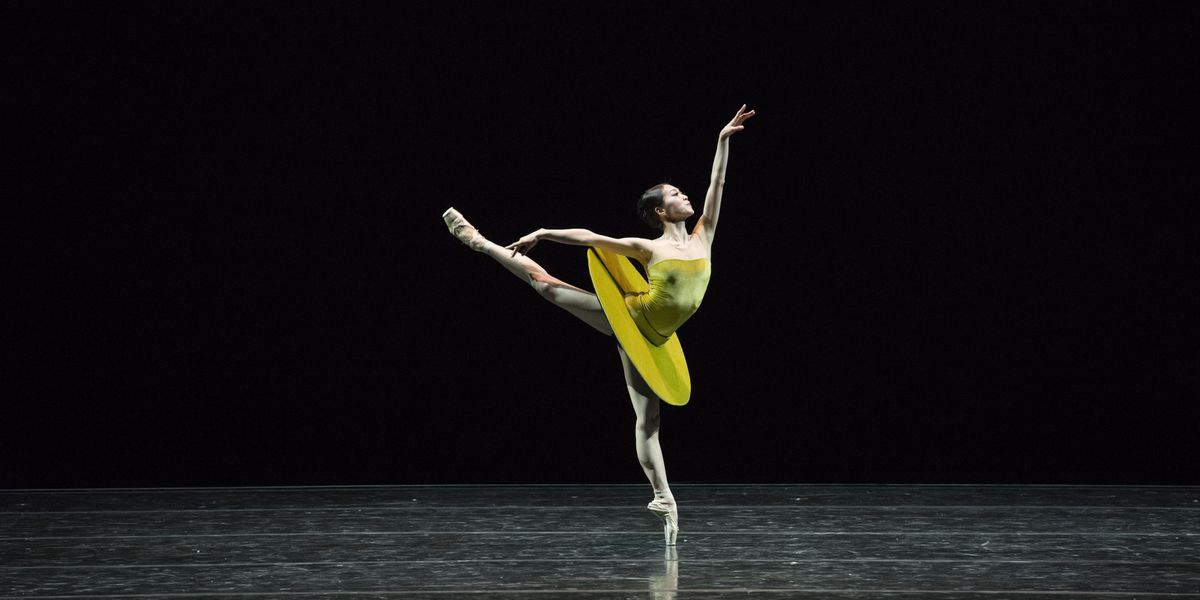The Unstoppable Misa Kuranaga
Misa Kuranaga had just arrived in Taipei, and was already eager to get in a rehearsal. At the following night’s last-minute gala engagement she would dance Don Quixote and Balanchine’s Tschaikovsky Pas de Deux. But at that point, she still hadn’t met her partner.
“He has a great reputation,” Kuranaga says of New York City Ballet principal Joaquin De Luz, “so I thought, Okay, let’s do this. I wouldn’t take such a crazy risk if I didn’t know his name.”
Gone are the days of comfortable career partnerships in ballet, of one-track dancers, of ballerinas who rely on a company to build their fan base. Kuranaga, whose killer work ethic and lyrical lines have long made her a fan favorite, has come to embody the future of ballet—a world of dancers who are independent and endlessly versatile. Dancers who supplement full-time company lives with part-time commercial gigs, and fill their vacations with guest appearances spanning the globe. “Being a dancer is almost a superhuman commitment, and Misa seems to understand that,” says Boston Ballet artistic director Mikko Nissinen. “She has always been a wonderful dancer—but she’s matured and become a true ballerina.”
Growing up in Osaka, Japan, Kuranaga won early ballet success in competitions, then started her career as a San Francisco Ballet apprentice. But one year and a bad case of culture shock later, she wasn’t rehired. She faced a decision: to leave ballet behind or to start over. Kuranaga chose to go back to school, enrolling at the School of American Ballet. By the end of the year, she received multiple job offers and chose Boston Ballet, earning her first principal role in La Sylphide only one year later.
She quickly built a reputation as a workhorse, spending hours in the studio alone. “I haven’t seen anybody work as hard as her—in every class, every rehearsal,” says American Ballet Theatre principal Herman Cornejo, a favorite partner of Kuranaga’s at the Vail International Dance Festival. Her determination led to steady promotions: second soloist in 2005, soloist in 2007 and principal in 2009.
“When I got to principal, that was actually my start,” says Kuranaga. “You have more freedom to express yourself.” Having spent years in search of “perfect” technique, she now faced the challenge of figuring out who she was—and communicating that from the stage. Rather than adopting a flashy persona, she was simply herself: the always-striving, never fully satisfied, vulnerable but determined ballerina. “She is a very honest artist, that’s what makes her so pure,” says Nissinen. “She’s very sincere, in life and onstage.”
Company life has now become her artistic safe space. “I’m getting to a point that I don’t have to feel nervous about every single thing anymore,” she says. That comfort has given her the security to relax and deepen her artistry. “Only she knows her weaknesses,” says Cornejo. “Sitting in the audience, I would never know.”
Today, Kuranaga’s fame reaches far beyond Boston. She brings her characteristic honesty to her tens of thousands of followers on social media, which she approaches as a public diary, whether she’s feeling silly in rehearsal, challenged by altitude sickness or inspired by a new partner. “I used to hate to post videos on YouTube, because I didn’t feel like I should be promoting myself—I felt like somebody else should do it,” she says. “But now, promoting myself makes me feel good. It’s a wonderful way to be independent.” That self-promotion has earned her notable side gigs, including advertising campaigns for Freed of London, Japanese skin-care line SK-II and Italian jewelry company Bulgari. Earlier this year, Bulgari chose Kuranaga as one of 10 inspiring Japanese women from a variety of professions, and after completing a series of photo and video shoots over the summer, this month Kuranaga will attend a red carpet event in Tokyo where one of the 10 women will win an achievement award.
It’s just the latest stop on a never-ending schedule of galas, festivals and events around the world, from Vail to Taipei to Havana. “I’m seeking inspiration,” she says. “That’s why I love guesting—because I grow. And then when I go back to Boston I train myself differently.”
For now, the work is what fuels her. The thrilling challenges like meeting a new partner right before a performance or dancing at high altitudes remind her that even now at the pinnacle of her career there’s still more to learn. “It’s hard, but once you’ve done it, it becomes your confidence,” she says. “Then you’re like ‘At sea level I can do anything.’ ”




